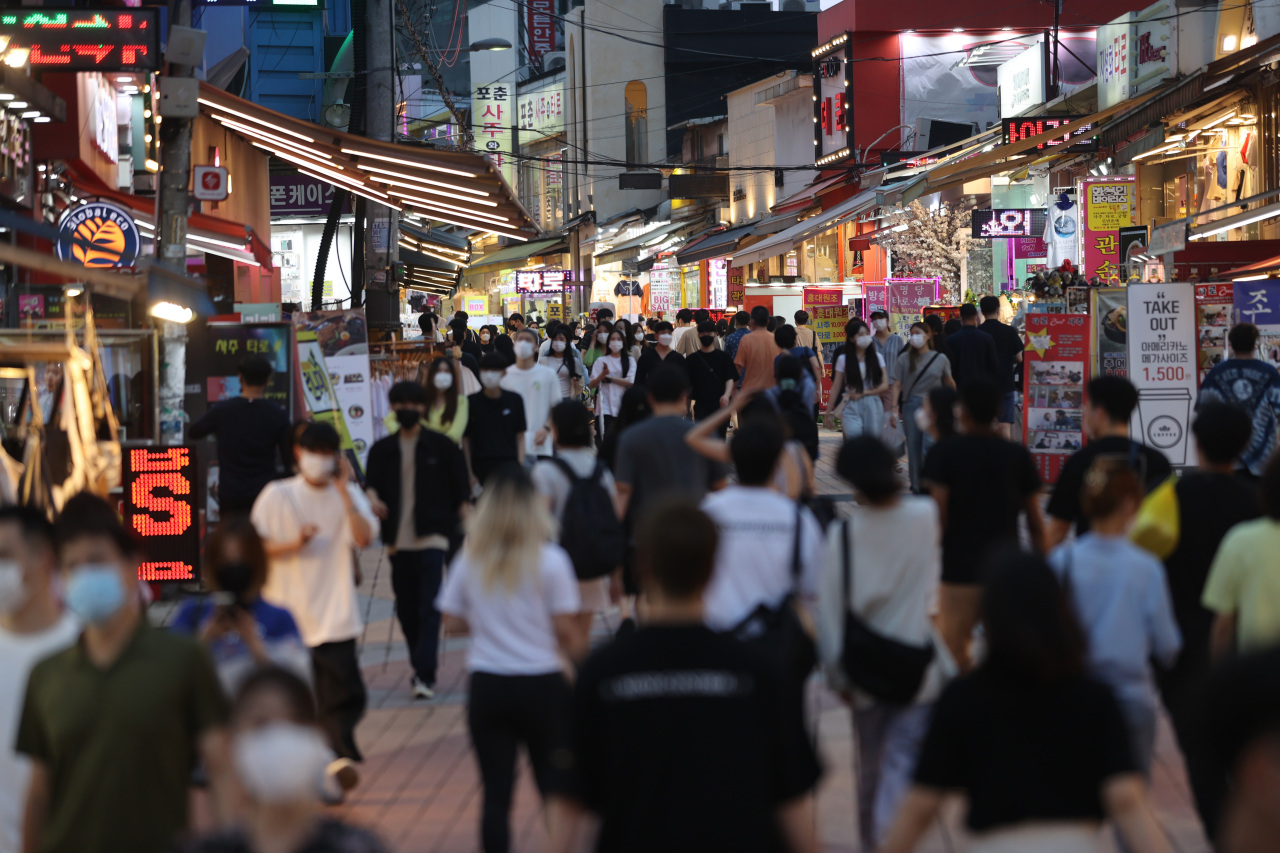 |
This file photo, taken July 10, 2021, shows people on a street near Hongik University in Seoul. (Yonhap) |
The "MZ generation," a Korean term referring to millennials and Generation Z, accounted for 35.5 percent of Seoul's population last year, the city government said Wednesday.
The cohort of people born between 1980 and 1994 (millennials) and between 1995 and 2004 (Generation Z) numbered 3.43 million, the largest of all age groups, according to a study by the city government.
Compared with the general population, the MZ generation appeared to put less priority on getting married and having children, and more priority on leisure time over work.
Asked about the necessity of marriage and children, the MZ generation gave scores of 4.46 and 4.22, respectively, out of a maximum 10. The equivalent for the general population was 5.33 and 5.27, respectively.
Within the MZ generation, women's scores for the two categories were 3.63 and 3.66, while men's were 4.98 and 4.50, indicating a gender gap.
On the question of whether they would prefer more free time over working more and earning more, the MZ generation responded with a score of 6.70, while the general population gave it a 6.36.
The study also found that millennials and Generation Z were more likely to change jobs if they found a better one, at 7.14 points, compared with 6.67 points among the general population.
And the MZ generation had higher hopes of moving between social classes, at 4.74 points, compared with 4.38 points among the general population. (Yonhap)







![[Exclusive] Hyundai Mobis eyes closer ties with BYD](http://res.heraldm.com/phpwas/restmb_idxmake.php?idx=644&simg=/content/image/2024/11/25/20241125050044_0.jpg)
![[Herald Review] 'Gangnam B-Side' combines social realism with masterful suspense, performance](http://res.heraldm.com/phpwas/restmb_idxmake.php?idx=644&simg=/content/image/2024/11/25/20241125050072_0.jpg)